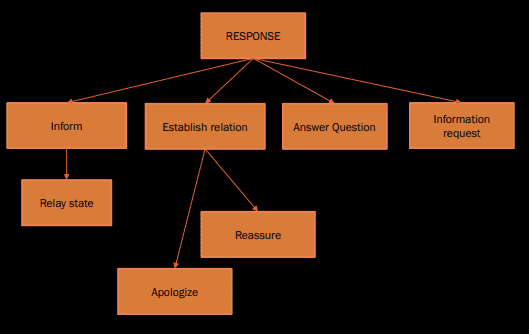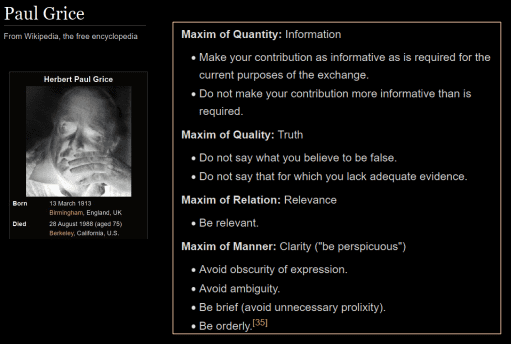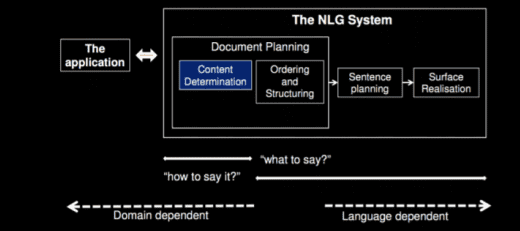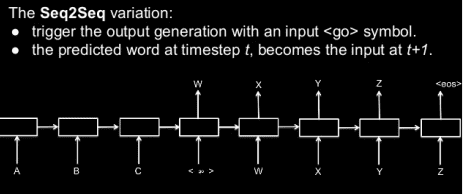Response Generation
Response generation is how virtual assistants construct a response based on the request given.
A response in relation to action performed can look like this:

Some traits for a virtual assistant:
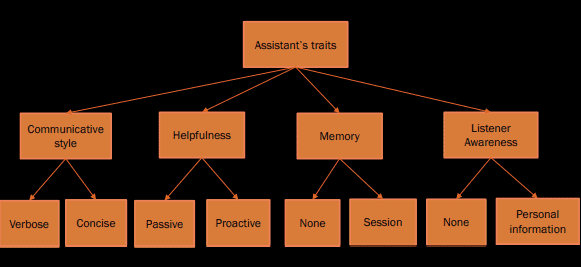
VA or Chatbot
Virtual Assistants
This is software that can assist people with basic tasks, usually using natural language. Intelligent personal assistants can go online and search for an answer to a user's question. Either text or voice can trigger an action.
Chatbots
Text is the main way to get assistance from a chatbot. Chatbots can simulate a conversation with a human user. Many companies use them in the customer service sector to answer basic questions and connect with a live person if necessary
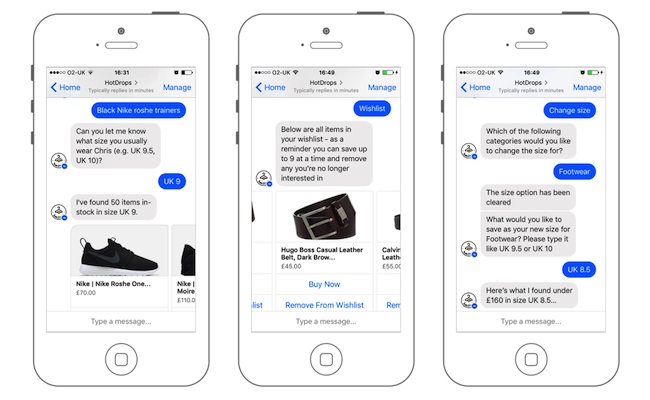
Conversational Design
8 principles:
- cooperative
- Paul Grice believed that there's no conversation without cooperation. It means your chatbot can support a customer only if it cooperates and provides information the user is looking for.
- goal-oriented
- context-aware
- Create personalized chatbot greetings. They'll pop up in various conditions, based on the time a user spends on a page, a page address, or a referring source.
- You can create a different greeting for users who visit your website for the first time and for those who are recurring visitors.
- Personalization boosts engagement and improves user experience.
- quick and clear
- While creating your chatbot stories, try to avoid complex metaphors, idioms, and long ambiguous statements. They slow down the conversation and take users away from where they need to be.
- Use simple language, don't ask a user to choose many things at once, and get to the point
- turn-based
- truthful
- polite
- error tolerant
- To make your chatbot error-tolerant, try to anticipate common spelling mistakes first. Teach your chatbot these variations to improve its understanding
Gricean's Maxims
Text Generation from Structured Data
Applications of Natural Language Generation:
- Analysis of business intelligence dashboards
- Reporting on business data/data analysis
- IoT device status and maintenance reporting
- Individual client financial portfolio summaries and updates
- Personalized customer communication
Stages of NLG process
- Document planning
- content planning, document outline
- Microplanning
- referring expressions, word choice, aggregation
- Realisation
- converting specifications to a real text
Current trend
Sequence-to-Sequence Models (SEQ2SEQ models)
Evaluation
NLG: Structure Data to Text
Input:
- Mona Lisa, is-in, Louvre
Output:
Mona Lisa is located in le Louvre
Le Louvre is home to the Mona Lisa
The Mona Lisa can be found in Le Louvre
Le Louvre contains the Mona Lisa
Metrics (automatic evaluation)
- Comparison between some references and the predictions
- Zero-cost beyond the gathering of train-dev-test data
Human evaluation
- Analysis of predictions
- Very costly
- Requires InterAnnotator Agreement analysis as well
Word-Based Metrics
- TER, BLEU, ROUGE, NIST, LEPOR, CIDER, METEOR
- Grammar-Based metrics
- Readability
- Word per sentence, syllables per sentence
- Grammaticality
- Mispellings, parsing score
- Readability
Human Evaluation
- Informativeness
- Does the utterance provide all the useful information from the meaning representation?
- Naturalness
- Could the utterance have been produced by a native speaker?
- Quality
- How do you judge the overall quality of the utterance in terms of its grammatical correctness and fluency?
Virtual Assistants
Virtual Assistant (or Conversational Agent)
It's capacity (what it can do)
It's perceived value by customers/users
Engagement
- How the user is interested in the conversation?
Coherence
- A coherent response indicates a comprehensible and relevant response to a user's request.
- Measure number of incoherent responses/total utterances
Domain Coverage
- Coverage of agent within a domain
- Goal-oriented (chatbots)
- General domain (VAs) - average on different domains
Conversational Depth
- Number of turns that are possible (on same topic)
Topical Diversity / Conversational Breadth
- For general domain agents, how the agent is able to chat on various domains
